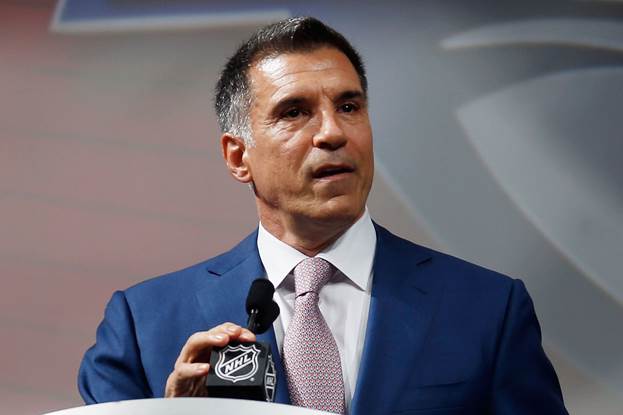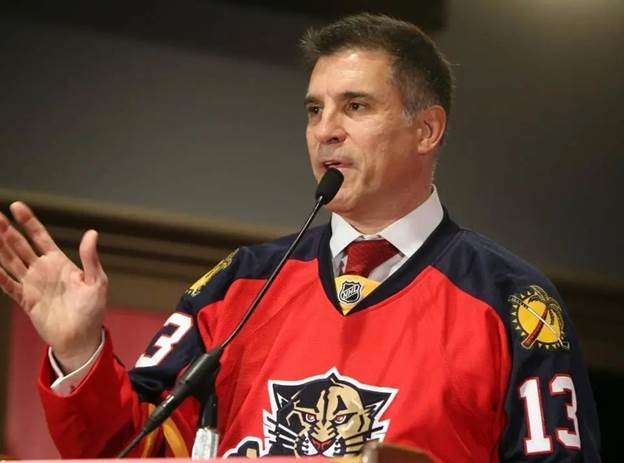A net worth figure, especially one as staggering as $3.5 billion, often appears as a monolithic number—a static testament to extreme wealth. But to view Vincent Viola’s fortune as merely a number is to miss the entire story. It is not a simple accumulation of cash but a dynamic, intricate ecosystem built on a revolutionary idea, relentless execution, and a series of high-stakes bets across diverse industries. Viola’s net worth is a testament to the immense value created by leveraging technology to conquer uncertainty, and its composition reveals the mind of a man who is equal parts Wall Street titan, passionate entrepreneur, and patriotic visionary.

To understand his net worth is to first understand the radical innovation Virtu represented in the often-impenetrable world of finance.
The Virtu Vortex: Mining Micro-Pennies at Scale
Before the mid-2000s, market making—the practice of providing liquidity by continuously buying and selling securities—was dominated by large, established firms using traditional methods. Vincent Viola, a former chairman of the New York Mercantile Exchange (NYMEX), possessed a deep, granular understanding of market mechanics. He foresaw that the future of trading wasn’t in grand speculative bets, but in the hyper-efficient, hyper-fast execution of millions of tiny transactions.
Virtu Financial was founded on a deceptively simple but technologically audacious premise: use sophisticated algorithms and cutting-edge infrastructure to profit from the bid-ask spread—the tiny difference between the price a While a single spread might be minuscule, executing millions of these trades daily across global equities, currencies, commodities, and options creates a river of revenue.
The key to Virtu’s model, and thus the foundation of Viola’s wealth, is its staggering win rate. The company famously reported that it had only one losing day in its first five years as a public company—a statistic that seems almost supernatural in the volatile world of trading. This wasn’t luck; it was the result of a technological moat so wide and so deep that few competitors could cross it. Viola invested hundreds of millions in co-locating servers next to exchange data centers to shave off milliseconds of latency, in hiring the brightest quantitative analysts, and in developing algorithms that could process market data and execute orders faster than any human or competing machine possibly could.

Viola’s ownership stake in Virtu is the single most valuable asset in his portfolio. When Virtu went public in 2015, it was a watershed moment that crystallized his paper wealth into a publicly traded, measurable fortune. The fluctuations in Virtu’s stock price directly impact his net worth on a daily basis, making this the core, liquid heart of his $3.5 billion. It is the definitive example of building a fortune not on a product, but on a system—a system designed to be the most efficient plumbing for the modern financial world.
Beyond the Algorithm: The Diversified Portfolio of a Mogul
While Virtu provides the gravitational center of his wealth, Viola is far from a one-trick billionaire. His net worth is strategically diversified across a range of assets that reflect his personal passions, risk appetite, and long-term vision. These assets are not just stores of value; they are active investments that compound his wealth and influence.
1. The Florida Panthers: A Passion Project with a Winning ROI
In 2013, Viola purchased the NHL’s Florida Panthers for a reported $250 million. On the surface, this appears to be the classic billionaire’s sports team trophy asset. For Viola, it was more. A West Point graduate and former Airborne Ranger, he understands teamwork, discipline, and building a winning culture. He invested heavily not just in players, but in the franchise’s infrastructure and its connection to the South Florida community.
This investment has proven to be astute financially as well. The NHL’s franchise values have skyrocketed due to media rights deals and growing global popularity. Today, the Panthers are estimated to be worth over $500 million, meaning this passion project has likely doubled in value, contributing significantly to his overall net worth. Furthermore, it provides a high-profile platform and tangible asset base separate from the volatility of Wall Street.

This investment is a brilliant vertical integration of his life’s work. If Virtu is the engine of trading, TT provides the dashboard and controls for other professional traders. By owning a key piece of the trading infrastructure ecosystem, Viola ensures his fortune is leveraged across the entire value chain of electronic trading, not just his own proprietary firm.
To discuss Vincent Viola’s net worth without acknowledging his philosophy towards it would be incomplete. His is not a story of wealth for wealth’s sake. His actions demonstrate a sense of duty and a desire to leverage his success for broader impact.
His upbringing in a working-class Italian-American family in Brooklyn instilled in him a profound belief in the American dream. His graduation from West Point and service in the Army shaped his commitment to the nation. This culminated in his nomination by President Donald Trump to serve as Secretary of the Army in 2017 (he ultimately withdrew due to difficulties in disentangling from his complex business ties).

This commitment is also evident in his philanthropy. Together with his wife Teresa, Viola has signed The Giving Pledge, committing to donate the majority of their wealth to philanthropic causes. Their giving focuses on veterans’ affairs, education, and faith-based initiatives. It is not an endpoint but a temporary reservoir of resources intended to be channeled into society. It transforms the figure from a measure of personal success into a future engine for charitable

